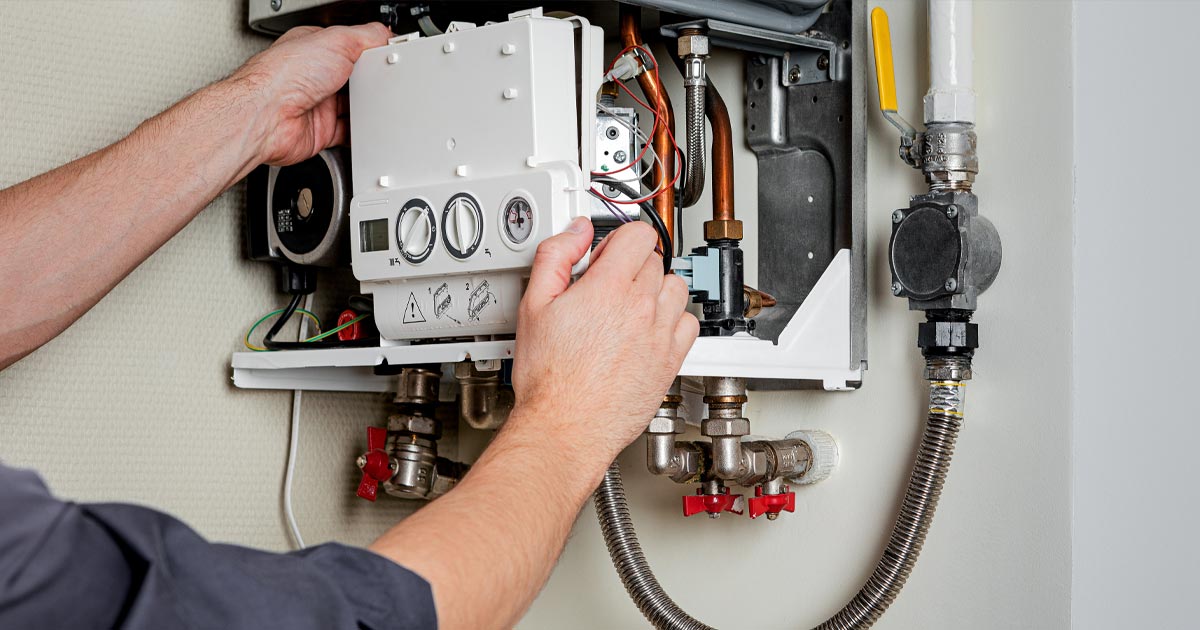
Repairing Your Old Boiler vs Buying a New One
Most of us stick to our comfort zone and rarely get out of it. We hold onto some past memories and things, not having the courage to take a leap and make a change. As absurd as it sounds, this even translates to boilers. Some homeowners choose to repair an old boiler over and over again (and throw huge amounts of money at it) just because they have some kind of emotional connection to it. And then they come to a point where the appliance shows strong signs of deterioration so there’s no other choice but to get it replaced.
On the other hand, some people are convinced salesmen are just using all that unfamiliar, technical jargon to try to get money out of their pocket and persuade them into buying a new boiler. We know, fixing the problem and paying a couple of hundred pounds instead of a couple of thousand seems tempting. Here are a couple of scenarios we’ve pulled together to give you some guidance on when you should repair and when it’s time to buy a new boiler.
Repairing Your Boiler
1. Minor, low-cost repairs
This is clearly a no-brainer. If you have a faulty boiler ignition, automatic air vent, or a thermocouple, you should definitely go ahead and have your boiler fixed. These (and similar repairs) won’t cost you more than around £250, and it would be absurd to waste money on a new boiler, especially if your boiler is only 5 to 10 years old.
2. Water pressure issues
If water pressure in your home, or just some parts of it, is low, it would be best to consult an engineer and get their opinion. In most cases, a faulty expansion vessel causes low water pressure, although it could be a leak somewhere in the system as well. Either way, repairing it is way more economical than boiler replacement.
3. Your radiators won’t heat up
Is your boiler working but radiators are still not getting warm enough? Worry not! Sludge, limescale, and other debris often mess up with radiator performance. The same applies to trapped air in your radiators. Sometimes, there’s an issue with the boiler pump. Try bleeding the radiators or have a professional powerflush them and inspect the boiler pump. Whatever it is, chances are, you won’t have to buy a new boiler.
Buying a New Boiler -Keeping an Old Boiler
1. Major water leaks
Minor leaks are a common and easy-to-fix issue with most modern boilers. But, if you have gone through a major boiler leakage, especially if it’s cast-iron, it’s safe to say getting a new boiler is your best bet. When a crack appears in the iron body of a boiler, it would require extra labour to have it fixed. In our opinion, it’s not worth the hassle. Or cost.
2. Heavy corrosion
Acidity and impurities regularly found in the water can eat away your boiler’s internal parts and seals if you don’t have it serviced once a year. And, if you haven’t looked after it, there’s a chance it’s performance are heavily affected by corrosion. If the appliance’s water inlet, seams, and outer casing show signs of corrosion, buying a new installation makes much more sense.
3. Faulty flue
We’ve already mentioned you should have your system serviced annually, and the same applies to your flue. If your flue is concealed or if it’s just old and not as functional as it should be, have your whole appliance replaced. A flue should meet the highest safety standards, but it’s hard for engineers to inspect the whole flue length, which is why it would be best to switch to a new unit.
Summary
So, should you repair or replace? It depends. There are so many factors that should be taken into account – your safety above all. Buying a new boiler is a costly option, but a safer bet.
If you are unsure about whether you should have your current boiler tuned up or have a new appliance installed, or if you’ve already made up your mind and you want to buy a new boiler get an instant, free boiler quote. You can contact us right away if you need any help or advice with buying a new product.

